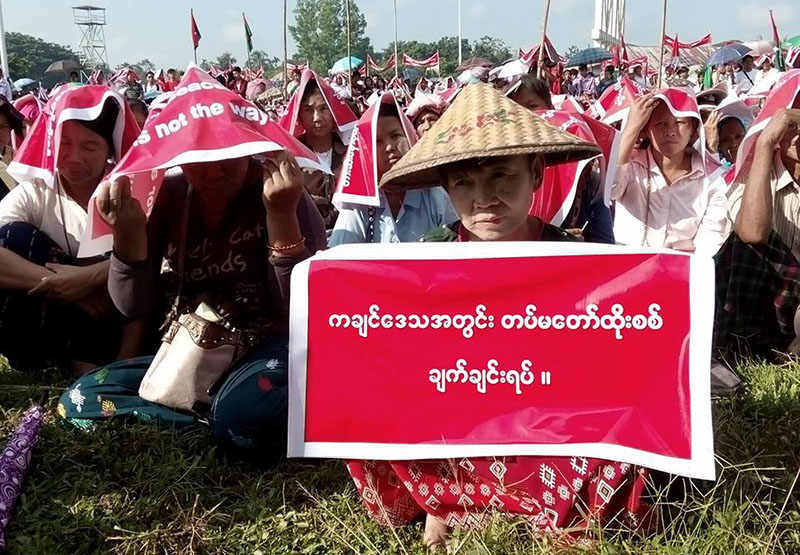Hundreds of people joined a vigil in the Kachin State capital Myitkyina on Monday to pray for an end to the ongoing armed conflict between Burmese government forces and the Kachin Independence Army (KIA) in Burma’s war-torn north.
The vigil started at 8am on 3 October at the Manau festival grounds in Myitkyina. The organisers of the event said they initially planned to march around the town, but were denied permission by the authorities.
“Mainly we are calling for an end to the aggression of the Burmese armed forces,” said Tang Gon, one of the organisers of the vigil. “It is is deeply troubling that the Burmese military is carrying out a large-scale offensive using both air and ground forces while the government is holding peace talks with ethnic armed groups.”
He added that it would be “detrimental to the peace process” if the government forces continue their offensive.
According to Kachin sources, the Burmese army has stepped up its offensive against the KIA since the beginning of September, when the country’s National League for Democracy government launched the so-called “Second Panglong Conference”, which aims to end decades of civil war in Burma.
Col. Naw Bo, a spokesperson for the KIA, told DVB last month that government forces had repeatedly launched artillery attacks against outposts near the group’s headquarters at Laiza, on the Burma-China border, and other positions on Ingkhambum Hill near the Myitkyina-Bhamo Highway in Waingmaw Township.
“We see these attacks as a harassment — an attempt to provoke fighting,” he said at the time.
[related]
Meanwhile, on Friday, the US embassy in Rangoon said that it was “deeply concerned by the ongoing fighting and very difficult humanitarian situation in Kachin State”, noting that it had “led to suffering and dislocation of local populations”.
In a statement on its Facebook page, the embassy urged “those engaged in the fighting to cease hostilities immediately” and called on the “relevant authorities to adhere strictly to their responsibility to protect civilians and to allow immediate, unhindered access for humanitarian organisations to assist IDPs and other civilians affected by the fighting.”
It also noted that the fighting had “the potential to undermine the progress and goodwill generated by the recent Union Peace Conference – 21st Century Panglong”.



